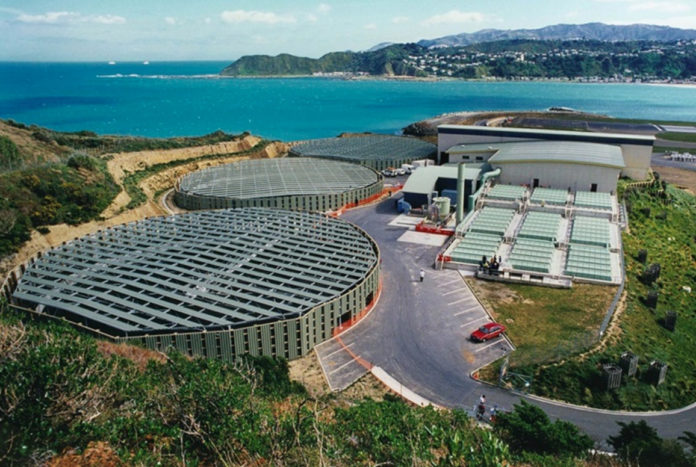A proposed new Sludge Minimisation Facility (SMF) for Wellington is a step closer, following unanimous approval of the business case by the Wellington City Mayor and Councillors.
Council says the new facility will reduce the mass flow of sewage sludge going to landfill by more than 80%, and help Wellington meet its targets of halving emissions by 2030 and becoming a net zero carbon capital by 2050.
Chief Infrastructure Officer, Siobhan Procter says the current sludge management process is not sustainable, and it is imperative that a new solution is found.
“The existing consents at the Southern Landfill expire in June 2026, and a new sludge management solution is required to support the consenting of the new landfill extension,” says Ms Procter.
“If we don’t provide a sludge treatment solution in Wellington, we’ll have to truck raw sludge to Bonny Glen Landfill in the Manawatū. This would substantially increase the environmental impact due to the odour and carbon emissions that would result, as well as the increased environmental risk associated with loss of containment during transport.”
SMF Project Technical Director, Chris French says Council carried out a rigorous options assessment and economic analysis before arriving at a preferred option – a thermal hydrolysis, digestion and thermal drying plant located at Moa Point (pictured).
“We engaged independent technical experts to identify a long list of 25 potential options, which was then shortlisted to four remaining options,” says Mr French.
“A Multi-Criteria Analysis was conducted to compare function, mana whenua values, complexity, environment and cost. The shortlisted options then underwent a cost-to-benefit analysis, and assessed for strategic fit, community and business needs, value for money, affordability and mana whenua values.
“The thermal hydrolysis, digestion and thermal drying process works by using heat to break down large molecules. This is followed by anaerobic digestion, which reduces the total mass of sludge into a stable product which is easier to dewater or dry.
“The process mimics an accelerated natural decomposition process of waste. It results in what is known as a Grade A biosolids product, which is low in pathogens and has multiple re-use opportunities in a circular economy. It also produces biogas which is captured for bio-energy generation.”
Wellington City Council has been working with Crown Infrastructure Partners (CIP) to deploy a new funding tool made available to Local Authorities under the Infrastructure Funding and Financing Act 2020. The funding tool is administered by CIP and enables private capital to be raised for new infrastructure.
The SMF project will return to Council in December for final funding approval.
The Council is now preparing to lodge the necessary resource consents, after which the public will be given the opportunity to provide feedback on the facility. Council says it will also host a public drop-in session, where members of the community can talk to the project team.
Physical site works are expected to be underway early in 2023.
Find out more at: www.wellington.govt.nz/sludge



